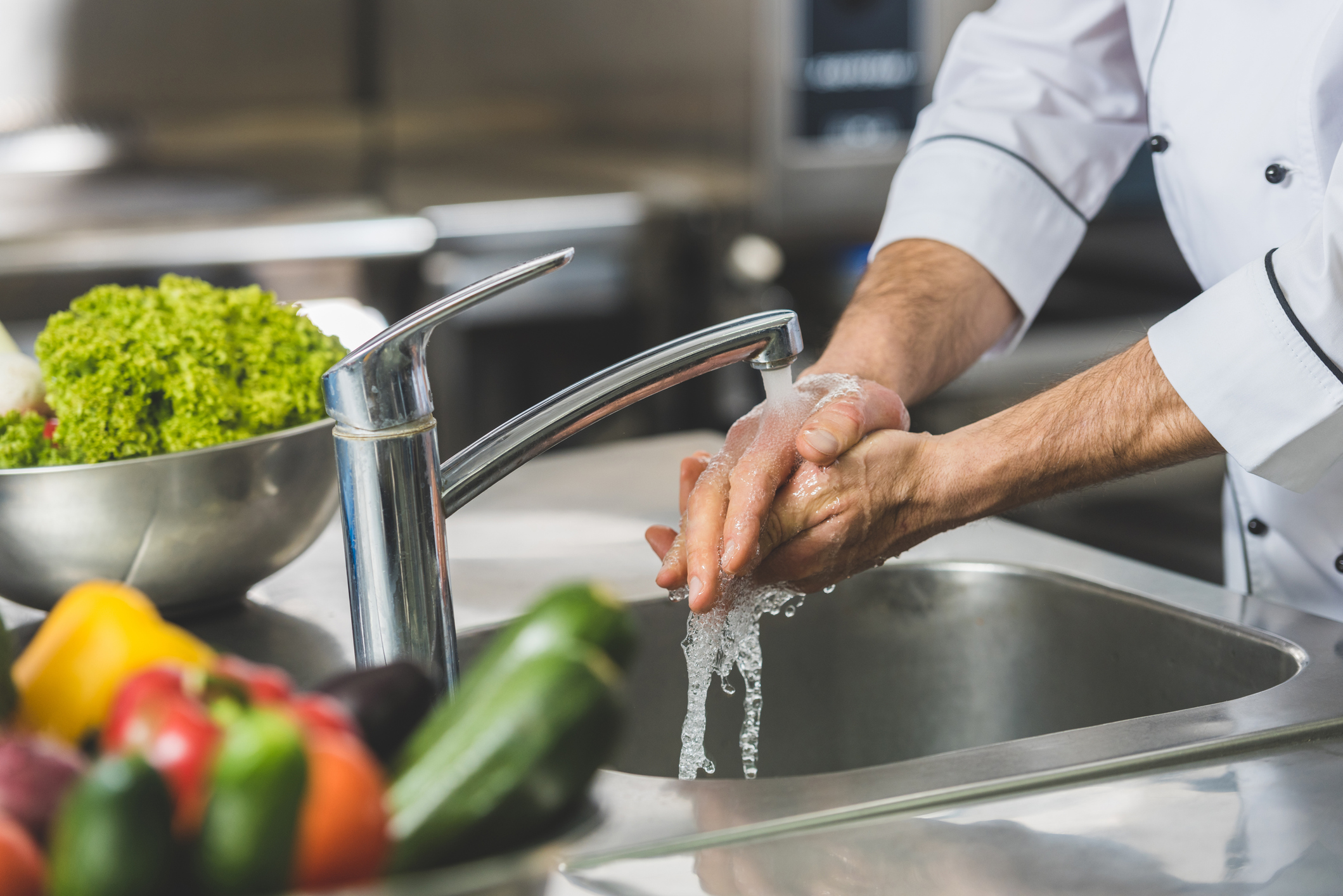ServSafe training will help you know why hand washing is extremely important while in the kitchen, as it can be the difference between spreading germs and diseases, and serving up a healthy, delicious plate. Well-known germs like Salmonella can potentially make people very ill, and you don’t want this to happen on your watch. Here is a brief outline of when and how to wash your hands while in the kitchen.
Crucial Times to Wash Hands
With ServSafe training, you will be able to make it a habit to wash your hands at crucial points while preparing and serving food. This can make a big difference and stop instances of food poisoning.
You should remember to wash your hands:
- After you handle uncooked meat, seafood, poultry, eggs, and even flour.
- Before wearing gloves and after using them to avoid transferring germs or chemicals between foodstuffs and the gloves.
- After you touch garbage.
- Before you eat.
- Before, during, and after the preparation of a meal.
- After you wipe counters and other surfaces using chemicals.
- After you touch pets and their food or treats.
- After you sneeze, cough, or blow your nose.
The World Health Organization has reported that annually, approximately 600 million people, which is about one in every ten people worldwide, fall ill after they eat food that has been contaminated. This is enough reason to practice handwashing often to minimize the chances of an occurrence.
How to Wash Your Hands
It is important to know the right way to wash your hands if you are to effectively prevent the spread of germs. The steps to follow when washing your hands include:
- Wetting your hands with running water. It does not matter if you prefer to use warm or cold water, either works well.
- Apply soap and work up a lather, making sure to lather the backs of your hands, between the fingers, and also under your nails whether they are long or short.
- Next, scrub your hands for a minimum of 20 seconds. An easy way to count down this time is to sing the “Happy Birthday” song twice, from beginning to end.
- Finally, you can rinse your hands under running water to get the soap off, and dry them.
It may seem insignificant, but following these steps to wash your hands will ensure that you don’t transfer any germs. No detail is left out by Servsafe training, and this makes any trainee that passes through our training competent enough to work in kitchens with the strictest requirements for safe food handling.

